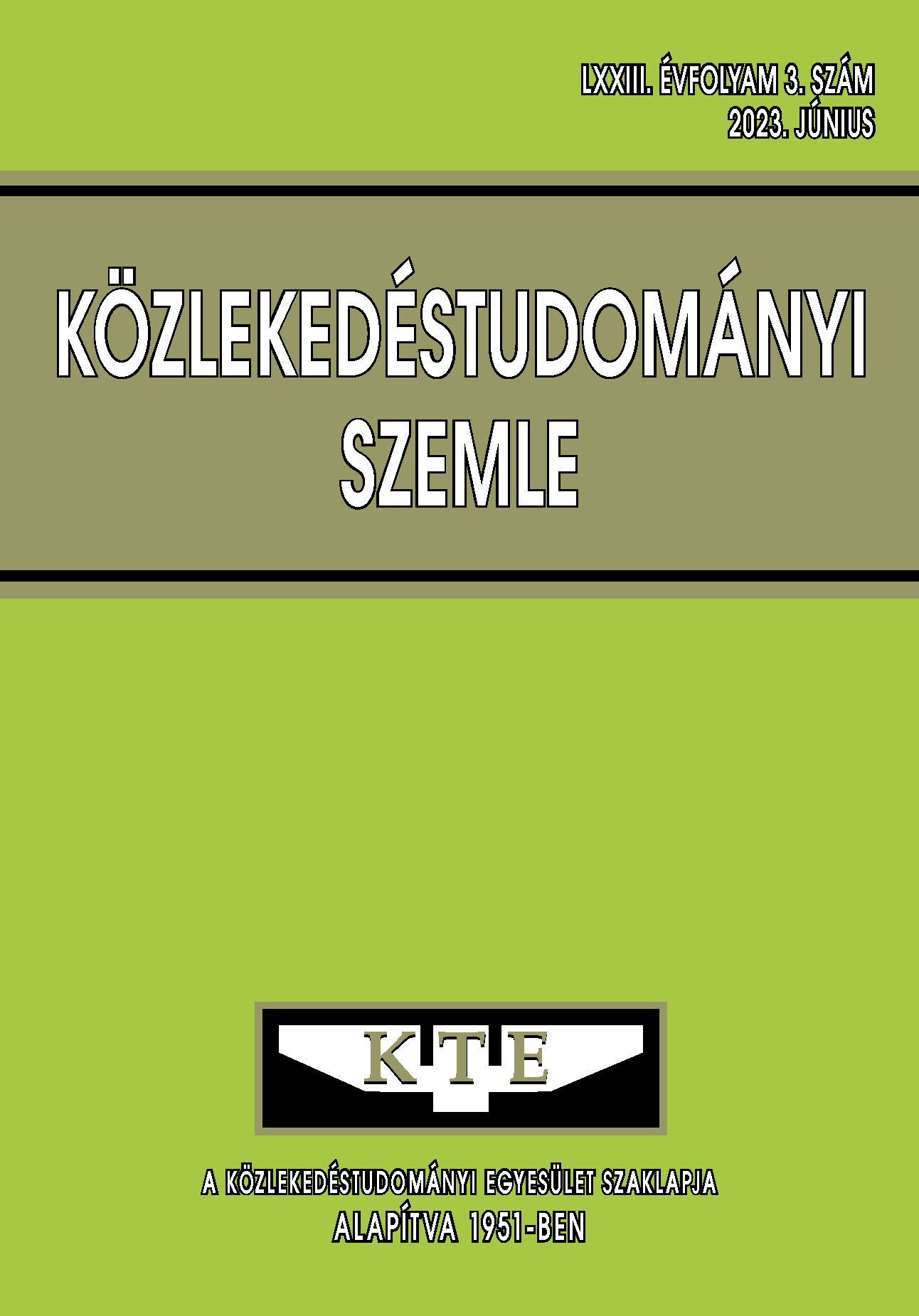Az 50 éves MARPOL Egyezmény VI. melléklete
Absztrakt
2023-ban 50 éve, hogy a londoni székhelyű Nemzetközi Tengerészeti Szervezet (IMO) létrehozta és működteti az 1978. évi jegyzőkönyvvel módosított a hajókról történő szennyeződés megelőzéséről szóló Nemzetközi Egyezményt [MARPOL 1973/1978]. A levegőszennyezéssel kiegészített, vagyis az éghajlatváltozás elleni, teljesebb védelmét csak az 1997. évi jegyzőkönyvvel biztosította.
Hivatkozások
Az IMO weblapja [www.ino.org]
Fourth IMO Greenhouse Gas Study, 2020 [a pdf alapú, angol nyelvű kiadvány letöltve az IMO weblapjáról]
MARPOL Consolidated Edition 2017 [IE520E; IMO, London]
MARPOL Annex VI and NTC 2008 with Guidelines for implementetion 2017 Ed. [IC664E; IMO, London]
MARPOL 2022 Ed [IMO Bookshelf, IMO, London]
DNV Energy Transition Outlook 2022, A global and regional forecast to 2050 [az Internetről letöltve]
DNV Maritime Forecast to 2050, Energy Transition Outlook 2022 [az Internetről letöltve]
DNV Insights into Seafarer Training and Skils Needed to Support a Decarbonized Shipping Industry [Report no.: 2022-0814, rev. 0; az Internetről letöltve]
Roadmap to decarbonising European shipping, a study by TE Transport&Environment, November 2018 [a www.transportenvironment.org weblapról letöltve, 2018]
Zalacko Roland – Zöldy Máté – -Simongáti Győző: Alternatív tüzelőanyagok alkalmazhatósága a hajózásban és tüzelőanyag-fogyasztás számítási módszerek [Közlekedéstudományi Szemle,
évf., 4. szám (2020. augusztus); pp. 53-62.]
IMO Note by the International Maritime Organization to the fifty-seventh session of the UNFCCC Subsidiary Body for Scientific and Technological Advice (SBSTA 57) Sharm El Sheikh, Egypt, 6 to 12 November 2022
Ship Emissions Toolkit, Guide No.1: Rapid assessment of ship emissions in national context, IMO, GloMEEP Project, 2018
Ship Emissions Toolkit, Guide No.2: Incorporation of MARPOL Annex VI into national law, IMO, GloMEEP Project, 2018
Ship Emissions Toolkit, Guide No.3: Development of ship emissions reduction strategies, IMO, GloMEEP Project, 2018
MAN Energy Solutions füzetsorozat „Future in the making” című kiadványában.
A Lloyds Register of Shipping SEEMP űrlapformája [az Internetről letöltve; 2022. december 6.]
DNV, Carbon Intensity Indicator (CII) – A closer look, Webinar 16 September 2021
Ship Efficiency in the Context of EEDI, EEXI and CII – The MCN guideline; Maritime Cluster Norddeutschland, 2022
A tengeri közlekedésből eredő szén-dioxid-kibocsátások nyomon-követéséről, jelentéséről és hitelesítéséről, valamint a 2009/16/EK irányelv módosításáról szóló 2015/757 számú európai
parlamenti és tanácsi rendelet; Az Európai Unió Hivatalos Lapja; 2015.5.19.; L123/55 – 76.
Az elektronikusan megjelenő cikkek nyílt hozzáféréssel rendelkeznek (OJS), online ingyenesen elérhetők és letölthetők. A cikkek szerzőit nem terheli megjelentetési vagy kiadási költség (APC). Felhasználóknak joguk van a cikkek olvasására, letöltésére, másolására, kinyomtatására, valamint azokban való keresésre, vagy a teljes szöveg linkkel történő megosztására.
A szerzőknek nyilatkozniuk kell arról, hogy beadványukat korábban nem tették közzé más folyóiratban, a pénzügyi támogatás feltüntetésre került és a hivatkozások listája teljes és pontos, beleértve az URL-ek és a DOI-k specifikációját is (ha rendelkezésre állnak). A cikktervezet beadásakor minden szerző jóváhagyja a benyújtott változatot. A szerzők garantálják, hogy a cikk az ő eredeti művük. A szerzők kötelesek részt venni a szakértői értékelés folyamatában, követni a bírálók tanácsait, betartani az előírt határidőket, és amennyiben előfordulnak, kötelesek visszavonni a benyújtást vagy kijavítani a hibákat.
Minden beadott cikket szakértői értékelés alá kerül, ahol a szerkesztők független értékelést kérnek legalább egy szakértőtől, ügyelve arra, hogy a bíráló(k)nak ne legyen összeférhetetlensége a szerzőkkel. A végső döntést a főszerkesztő hozza meg, aki figyelembe veszi az értékeléseket és a szerkesztők javaslatait. A szerkesztők és a lektorok bizalmasan kezelik a beadványt.
A kiadó és a szerkesztők elkötelezettek a magas etikai normák betartása mellett, és megakadályozzák azokat a publikációkat, amelyekben kutatási visszaélés történt. Az ilyen etikai kérdésekben a COPE irányelveit követik.
A szerzők fenntartják a szerzői jogokat, és megadják a folyóiratnak az első közzétételi jogot a Creative Commons Licenc alapján (https://creativecommons.org/licenses/by-nc-nd/4.0), amely lehetővé teszi mások számára, hogy megosszák a művet, elismerve a mű szerzőségét és a folyóiratban való első közzétételt.
A folyóirat archiválja az összes megjelent cikket, és a folyóirat tulajdonosa, a Közlekedéstudományi Egyesület továbbra is üzemelteti az adatbázist abban az esetben is, ha a folyóirat kiadása megszűnik.















